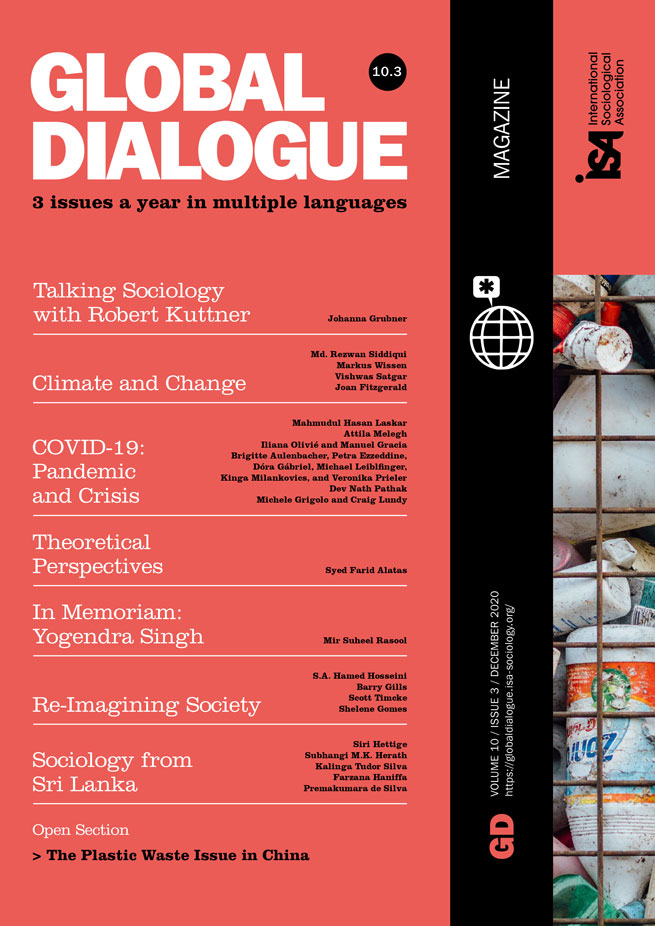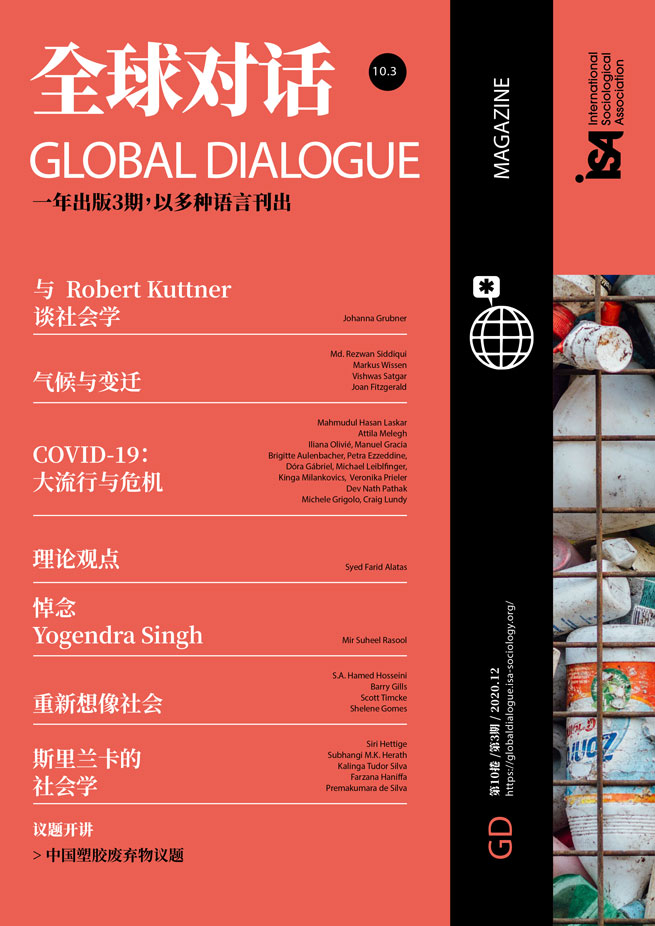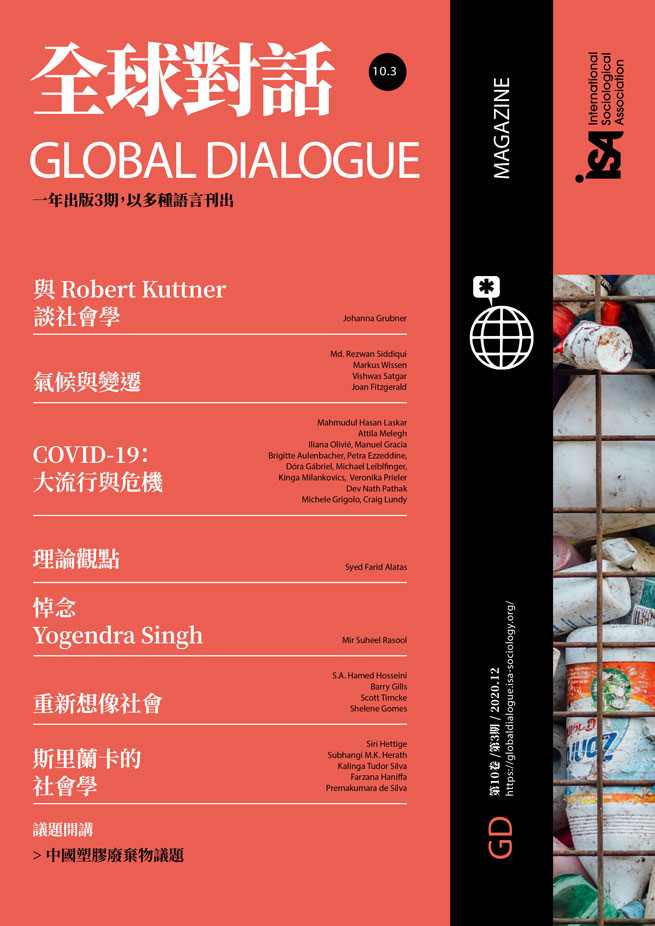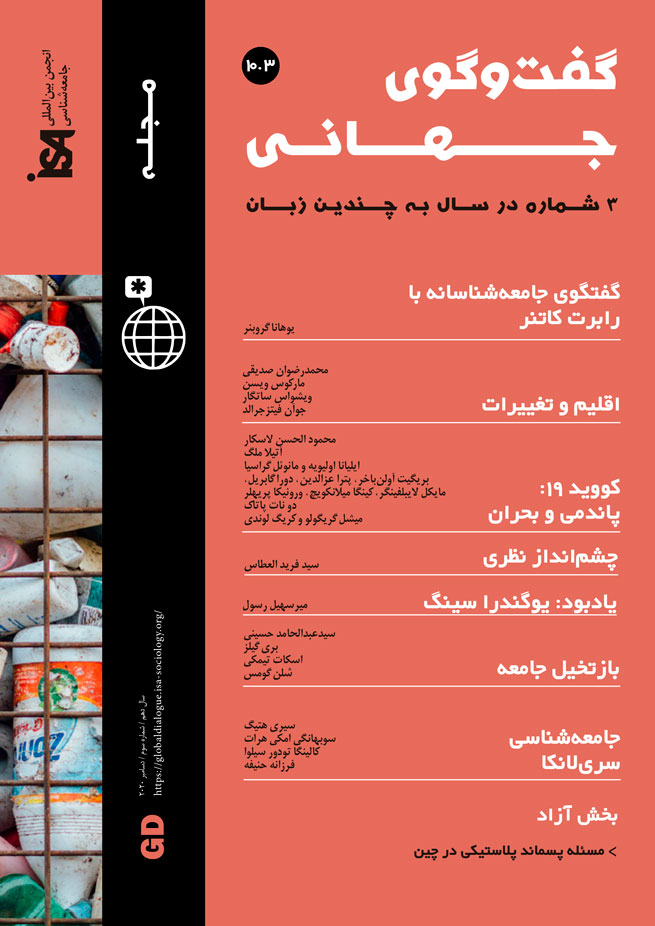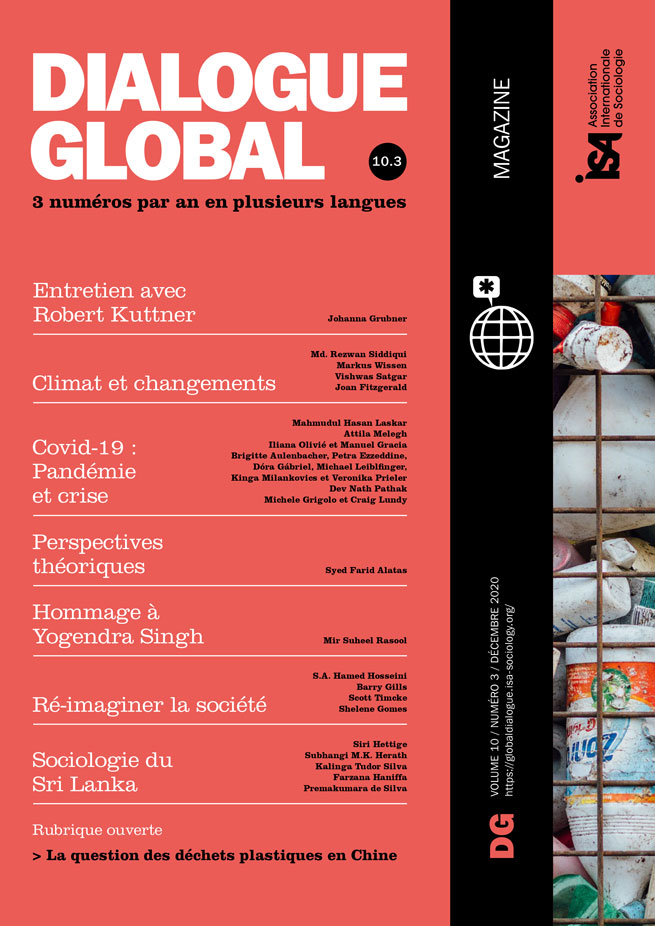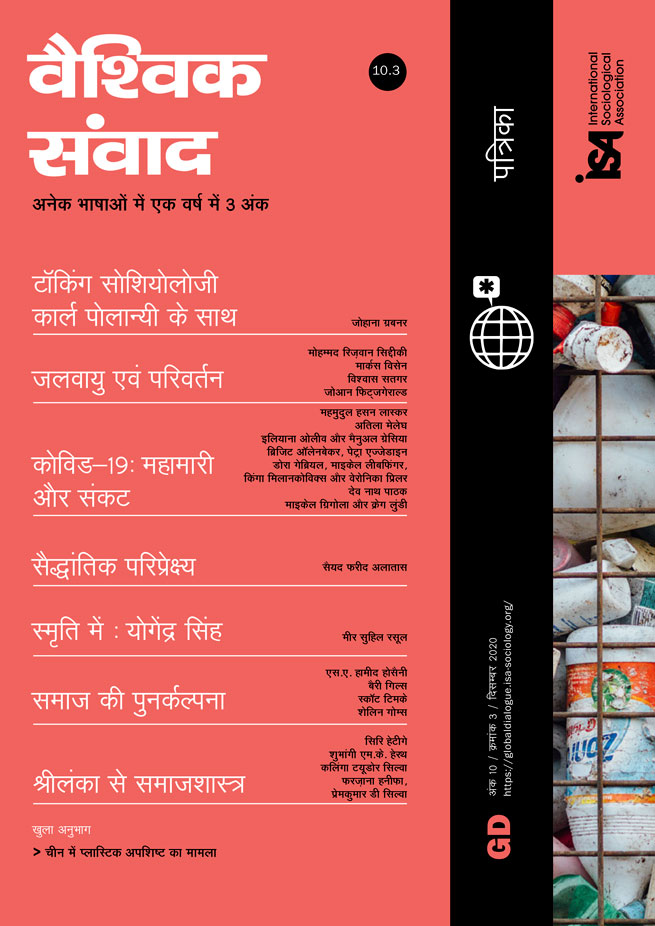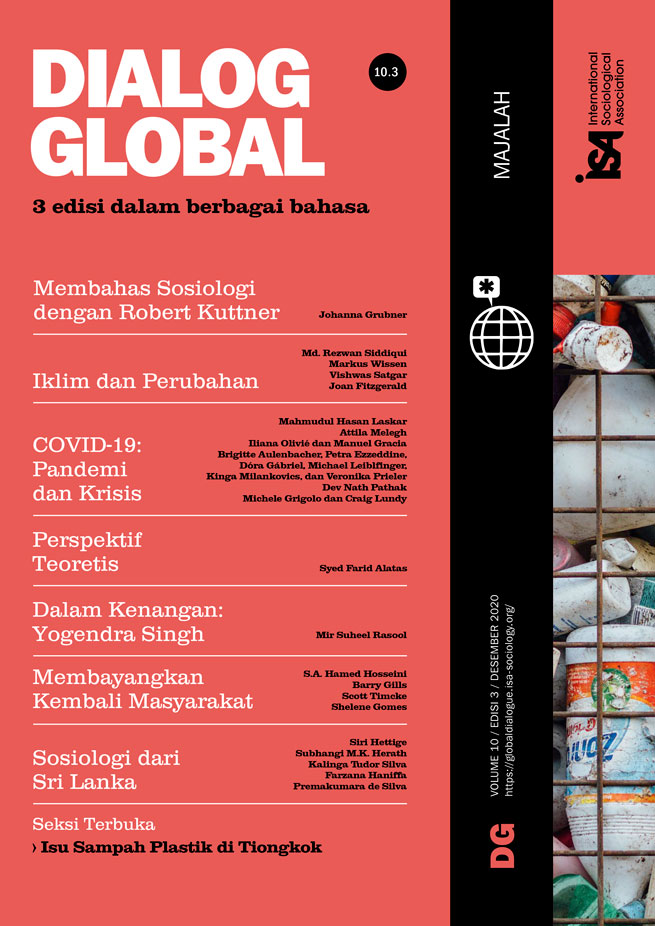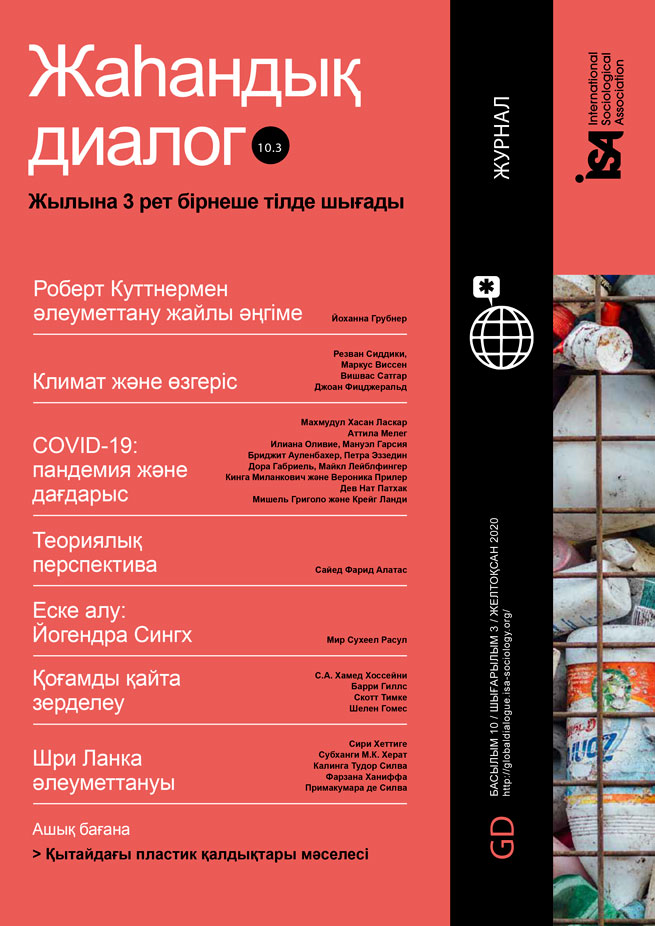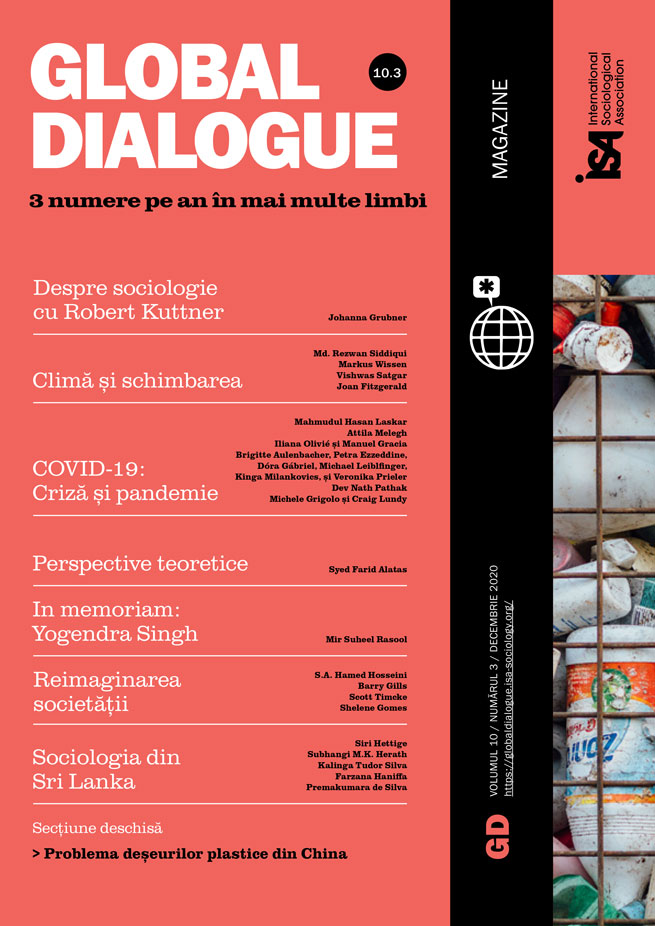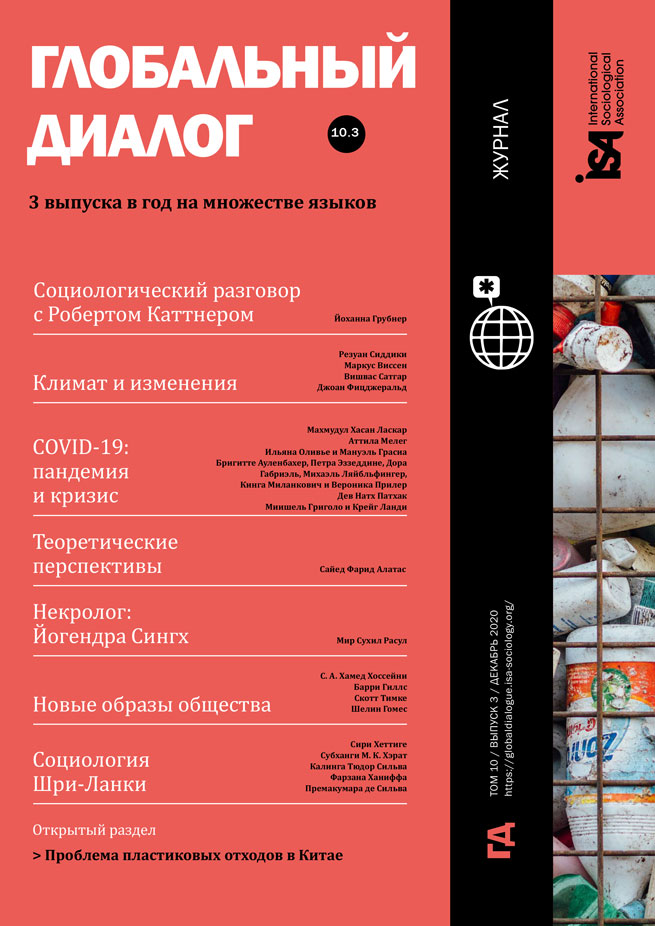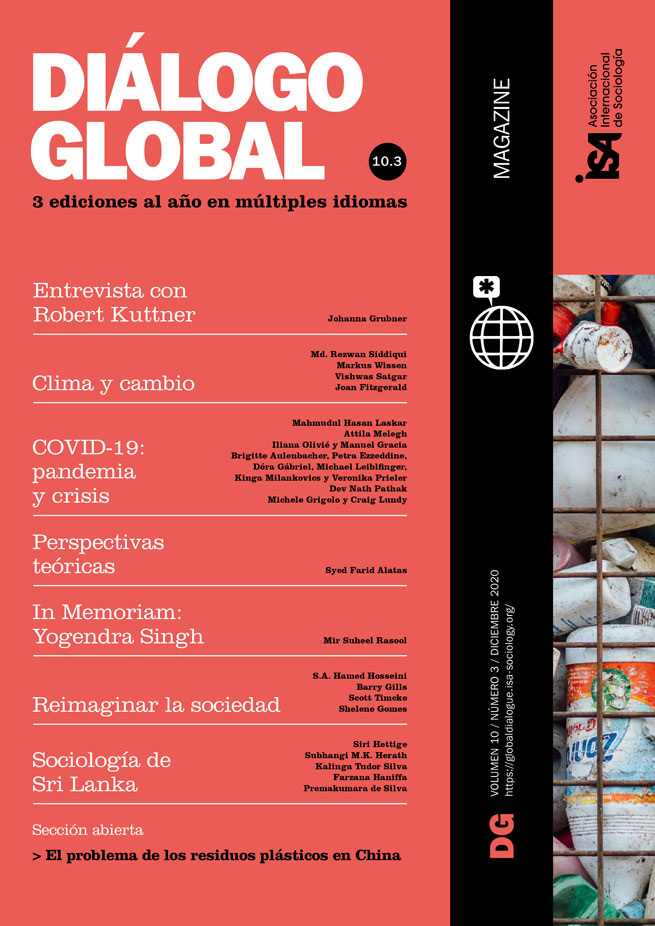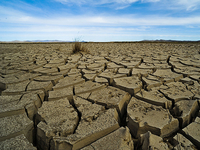After Capitalism: Democratic Eco-Socialism?
October 29, 2020
In the contemporary carbon-centric lifeworld of capitalism, gas-guzzling automobiles, hi-tech airplanes, massive container ships, and energy-using skyscrapers are weapons of mass destruction. The more these resource-intensive and carbon-centric social relations prevail, the more climate change is accelerated. After rupturing the earth system, this new capitalist nature – under patriarchal domestication, scientifically observed and managed – now has to be geo-engineered and carbon emitted has to be stored in the deep recesses of planet Earth; despite the uncontrollable consequences for life on the planet, oil spigots will only be shut when the last dollar is extracted from this deadly resource. The logic of contemporary capitalism is not merely about dispossession, but about ecocide, that is, the obliteration of the conditions necessary to sustain human and non-human life on planet Earth. This is what Karl Marx called the “metabolic rift of capitalism” and Rosa Luxemburg, the “conquest of the natural economy.”
Neoliberalism’s terminus
Neoliberalism’s ideals have been confirmed at its historical terminus. Property rights have spawned the sovereignty of capital, greedy plutocrats wield state power with the crudest of instrumentality, and hyper individualism valorized through Americanized consumption and populist media confirms the banality of celebrity culture. The self-determination of the Americanized and nihilistic capitalist subject is the only expression of being human in contemporary neoliberal capitalist civilization. But even this is not enough. The next step is the trans-human: the technotopian vision of bio and digital capital. After embracing structural inequality for decades, the world of neoliberal capitalist utopia no longer has common cause with humanity. This is even clearer given the absence of enemies: Soviet socialism is dead, the working class is precariatized, nature is conquered, and history has ended. There are no left bogeys to blame, yet a new right-wing, neo-fascist progeny of this neoliberal order – from Washington, Brasilia, New Delhi, Budapest to Moscow – stands ready to brutally crush any challenge to this utopia, while misdirecting publics against scapegoats – the migrant, the black person, the “Muslim,” the indigenous, or any inflated “terror threat.”
These regimes are disposed to authoritarian and militarized violence as they seek to defend the normalcy of capitalism at any cost. However, history and struggle have demonstrated how unsustainable authoritarian regimes are. The monopoly on violence is never a guarantee of pacification. Even the US military understands it cannot control a world in climate chaos while the US itself is ravaged by climate shocks. War requires scarce resources and is costly, despite the hard choices climate change is going to bring to societies. Militarism in the age of nuclear weapons also has constraints. The hegemonic governance of brutish inequality is over, while the demos is restless and desperate. COVID-19 has exacerbated suffering. At the same time, the democratic subject has a full-spectrum gaze, with multiple digital information sources enabling easy access to information about the socio-ecological condition. Such a subject can even marvel at the idiocy of imperial power from afar, observe the clumsiness of autocrats, and catch glimpses of inspiring assertions of subaltern street power. Put differently, while capitalism will utilize the neo-fascist option, and will even weaponize the digital sphere, the iron curtain of absolute oppression is not invulnerable. It is at this intersection that democracy and socialism will thrive.
Ecocide as capitalism’s endgame
The real terror of the present moment in history is not capitalist neo-fascism but the juggernaut of capitalist ecocide that threatens not just planetary life conditions but capitalism itself. This makes the second coming of fascism anachronistic. It is bone-chilling to see carbon capital prolong its place in the global energy mix despite the alarm bells of climate science, the slowdown in demand during COVID-19, and at least one major climate shock every week on planet Earth. Trump has licensed more carbon extraction in the US, placing it at the top of supply tables, and Bolsonaro supports commercial interests that are continuing genocidal violence against indigenous peoples, destroying biodiversity, and hastening the release of about 140 billion tons of carbon from the Amazon through slash-and-burn appropriation. In South Africa, carbon ruling classes are building the largest coal-fired power station in the world, vaunt fracking, and salivate at the prospects of off-shore gas and oil extraction. These examples of carbon criminality confirm that capitalism and its carbon ruling classes threaten everything including themselves, given the doomsday clock.
The self-destructive logic of ecocidal capitalism is now patently clear. Africa, the imperial subject of the Global North since the Berlin conference, is captured by lumpen bourgeois interests, and already unravelling in parts due to climate shocks. It is estimated that at least 200 million Africans will be displaced by worsening climate shocks and breakdown. “Fortress Europe” and “Prison Complex USA” will not be able to keep the “barbarians” out because these societies, despite their affluence, will also face serious internal fault lines due to climate shocks. The Sunrise movement, Extinction Rebellion, and #FridaysForFuture are merely 1 degree Celsius movements. At 1.5 degrees many more will rise in these societies as people reject being treated as collateral damage by irrational and eco-fascist ruling classes.
Towards democratic eco-socialism
Three forms of climate justice disruption, expressing the living hope of the many, are being seen. Such expressions of living hope are bringing about a convergence of climate justice forces, together with children and citizens. First is the symbolic disruption of normalcy. The best example of this is Greta Thunberg and the #FridaysForFuture children’s protest actions. The alarm bell raised by the children is reinforcing the urgency in climate science and vice versa. Second is tactical disruption through gridlocking carbon, including fossil fuel extractive circuits. Calls to boycott MacDonald’s, Walmart, and Subway because they have interests in slash-and-burn agriculture in the Amazon, or Ende Gelände efforts to blockade coal pits in Germany are examples. Third is strategic disruption of ecocidal capitalism through systemic alternatives such as Green New Deals (GND) that advance rapid decarbonization, demilitarization, democratic systemic reform from below enabling people’s power to drive the just transition, and a geopolitics of climate justice. Bernie Sanders’ GND and the Climate Justice Charter in South Africa with its conception of a political project are examples. Ultimately, these forces will also have the task of confronting the ecocidal logic of imperial power to ensure the Global South can make its own climate justice choices, including for deep systemic change that advances democratic eco-socialism.
A crucial democratic systemic reform that will have to be further globalized from the periphery is the “re-agrarianization” of the world through food sovereignty and agro-ecology. Initiated by La Via Campesina over two decades ago, every community, village, town and city across the planet will have to embrace such a democratic eco-socialist alternative. This has been underscored by the recent biodiversity report of the International Panel on Biodiversity and Ecosystem Services and the land use report of the International Panel on Climate Change. The bottom line is that mono-industrial, carbon-centric, and globalized food systems are implicated in our extinction.
Ultimately, the ecological horizons of contemporary socialism will be defined by biological disasters (such as COVID-19), global heating, climate shocks, worsening inequality, and the human impulse to live. Water, land, biodiversity, oceans, and the biosphere – the global commons – are all going to be implicated in the revenge of nature against capitalist ecocide. The infinity of nature and the finitude of the human will define the next period of socio-ecological history. It is at this confluence that democratic eco-socialism will learn more deeply from indigenous earth traditions to advance life, reject productivism, and affirm a de-alienated relationship with nature. This is what Marx called a “positive humanism.” A slow world, operating within the metabolic cycles of nature, is our only hope. Such a world never died but was merely pushed into the shadows by colonial, neoliberal, and imperial violence.
Vishwas Satgar, University of the Witwatersrand, South Africa and member of ISA Research Committees on Economy and Society (RC02) and Labour Movements (RC44) <Vishwas.Satgar@wits.ac.za>

